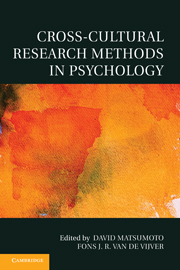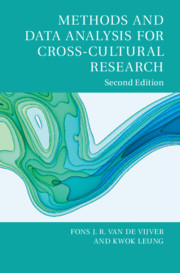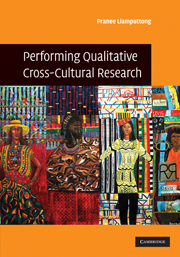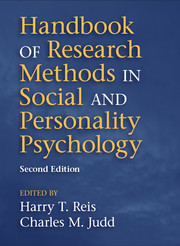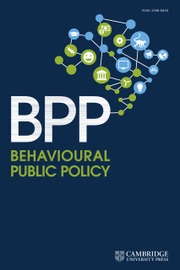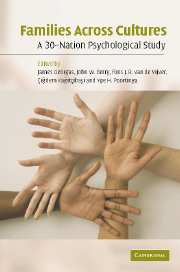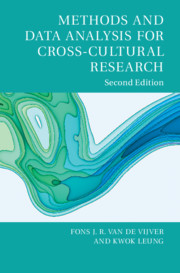Cross-Cultural Research Methods in Psychology
$47.99 (P)
Part of Culture and Psychology
- Editors:
- David Matsumoto, San Francisco State University
- Fons J. R. van de Vijver, Universiteit van Tilburg, The Netherlands
- Date Published: October 2010
- availability: Available
- format: Paperback
- isbn: 9780521758420
$
47.99
(P)
Paperback
Other available formats:
Hardback, eBook
Looking for an examination copy?
If you are interested in the title for your course we can consider offering an examination copy. To register your interest please contact [email protected] providing details of the course you are teaching.
-
Cross-cultural research is now an undeniable part of mainstream psychology and has had a major impact on conceptual models of human behavior. Although it is true that the basic principles of social psychological methodology and data analysis are applicable to cross-cultural research, there are a number of issues that are distinct to it, including managing incongruities of language and quantifying cultural response sets in the use of scales. Cross-Cultural Research Methods in Psychology provides state-of-the-art knowledge about the methodological problems that need to be addressed if a researcher is to conduct valid and reliable cross-cultural research. It also offers practical advice and examples of solutions to those problems and is a must-read for any student of culture.
Read more- Provides the latest knowledge about the best methods to conduct valid and reliable cross-cultural research
- Not only are the methodological problems discussed, but solutions and examples are provided so that readers get an excellent grasp of how to deal with the problems
- A must-read for any student of culture
Reviews & endorsements
“Studies of culture are requisite to express the full scope of human psychology. However, the knowledge base of contemporary behavioral and social science almost entirely reflects Western (European and North American) origins. In response to this state of affairs, cultural study is on the ascendancy, and to ensure meaningful, appropriate, and practical cultural research, it is necessary that design, measurement, and analysis in cultural science begin on reliable and valid footing. This edited volume collects state-of-the-art, comprehensive, and informative chapters by leading authorities. Each chapter lucidly conveys in-depth coverage of the most important methodological topics in the field – equivalence and bias, translation, sampling, response style, data analysis, multilevel modeling, and even meta-analysis – and illuminates its subject matter with illustrations from cutting-edge research.”
– Marc H. Bornstein, Editor, Parenting: Science and Practice
See more reviews“The why, where, who, what, and when involved in the complex dance between culture and psychological research invite many questions. But the how in this dance – selecting the right methods of inquiry – is absolutely necessary to help interpret what the dance means. Editors David Matsumoto and Fons van de Vijver have compiled a valuable book which will help guide the current generation of culture-oriented psychologists. As co-author of the first relatively comprehensive book in this area (Cross-Cultural Research Methods by Brislin, Lonner and Thorndike, 1973), I join many in welcoming this contribution that impressively updates the many advances in methods.”
– Walter J. Lonner, Founding and Special Issues Editor, Journal of Cross-Cultural Psychology
“This book responds wonderfully to a long-felt need: a full-length exploration of the broad range of distinctive methodological problems faced by those who wish to undertake cross-cultural studies of psychological issues. Problems are not just identified, a wealth of hands-on advice on how to manage them is also provided. The editors have assembled a panel of many of the best-known methodologists in the field and provided a structure that leads the reader gently toward more productive and thoughtful ways of doing research. This volume should find a place on every cultural researcher's bookshelf.”
– Peter B. Smith, University of Sussex
"....Those with the relevant background will appreciate these well-written essays, most of which offer concrete examples from the research literature that allow readers to see how to execute cross-cultural studies with whatever tools the authors describe. In sum, cross-cultural researchers who use quantitative methods will find the book useful.... Recommended...."
– B. J. Lovett, Elmira College, CHOICE"...Readers can use this book in its entirety or just read individual chapters. It is a must read for cross-cultural researchers in psychology, and reading it would be a great way to build more knowledge and critical thinking skills for advanced doctoral students and early career professionals who are hoping to contribute to the cross-cultural psychology literature in the future. It would also be a useful tool for faculty members and researchers who direct a research team or who teach an advanced seminar in cross-cultural psychology."
–Dr. Yuki Okubo, Alliant International University-San Francisco campus, PsycCRITIQUESCustomer reviews
Not yet reviewed
Be the first to review
Review was not posted due to profanity
×Product details
- Date Published: October 2010
- format: Paperback
- isbn: 9780521758420
- length: 406 pages
- dimensions: 229 x 150 x 23 mm
- weight: 0.54kg
- contains: 11 b/w illus. 18 tables
- availability: Available
Table of Contents
1. Introduction to the methodological issues associated with cross-cultural research David Matsumoto and Fons J. R. van de Vijver
Part I. Conceptual Issues and Design:
2. Equivalence and bias: a review of concepts, models, and data analytic procedures Fons J. R. van de Vijver and Kwok Leung
3. Translating and adapting tests for cross-cultural assessments Ronald K. Hambleton and April L. Zenisky
4. Making scientific sense of cultural differences in psychological outcomes: unpackaging the magnum mysterium Michael H. Bond and Fons J. R. van de Vijver
5. Sampling: the selection of cases for culturally comparative psychological research Klaus Boehnke, Petra Lietz, Margrit Schreier and Adalbert Wilhelm
6. Survey response styles across cultures Timothy P. Johnson, Sharon Shavitt and Allyson L. Holbrook
Part II. Data Analysis and Interpretation:
7. Methods for investigating structural equivalence Ronald Fischer and Johnny R. J. Fontaine
8. Evaluating test and survey items for bias across languages and cultures Stephen G. Sireci
9. Effect sizes in cross-cultural research David Matsumoto, John J. Kim, Robert J. Grissom and Dale L. Dinnel
10. Data-analytic approaches for investigating isomorphism between the individual-level and the cultural-level internal structure Johnny R. J. Fontaine and Ronald Fischer
11. Multilevel modeling and cross-cultural research John B. Nezlek
12. Cross-cultural meta-analysis Dianne A. van Hemert.Instructors have used or reviewed this title for the following courses
- Culture and Psychology
- Psychopathology and Theories and Techniques of Counseling
- Research Methods in Psychology
- Research in Cross Cultural Psychology
Sorry, this resource is locked
Please register or sign in to request access. If you are having problems accessing these resources please email [email protected]
Register Sign in» Proceed
You are now leaving the Cambridge University Press website. Your eBook purchase and download will be completed by our partner www.ebooks.com. Please see the permission section of the www.ebooks.com catalogue page for details of the print & copy limits on our eBooks.
Continue ×Are you sure you want to delete your account?
This cannot be undone.
Thank you for your feedback which will help us improve our service.
If you requested a response, we will make sure to get back to you shortly.
×
